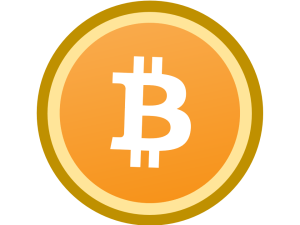Over the last year, Bitcoin has enjoyed significant news coverage, mostly of the negative sort, having seen its value trending down from $658 to $227 bitcoins to the dollar, and news garnering events such as the collapse of the Mt. Gox exchange and scandal around the Silk Road website causing concern amongst potential users of the cryptocurrency. Lost amongst the excitement around the virtual currency is an underlying technology, blockchain, which may prove to have a greater impact than the cryptocurrency for which it was built.
The interest in blockchain has recently spread to the land administration sector, largely based on news regarding the decision made in Honduras to build a land registry system using blockchain technology. Even Hernando de Soto seems to be jumping in on the concept, as can be seen by his role moderating at the recent Blockchain Summit hosted by none other than Sir Richard Branson at his private getaway in the West Indies, Necker Island.
To assess why the blockchain concept might apply to the land sector, it’s important to understand what the blockchain really is. In the simplest terms, the blockchain is a distributed database holding a public ledger of all transactions, such as bitcoin. What makes the blockchain so innovative is that every node has a complete or partial copy of the blockchain and all historical transactions, eliminating the need for a central database and ensuring that a single user is unable to fraudulently manipulate the data.
The concept of a transparent, decentralized public ledger could easily apply to land information management, where the land registry serves as a database of all property rights and historical transactions. The added benefit of using the blockchain technology is that you can get away from a centralized database, which too often could be vulnerable to hacking, misuse by system administrators, or even natural or man-made disasters destroying the data center (unfortunately, too often land administration authorities in emerging economies do not utilize best practices in data backup). Blockchain could also potentially serve as a sort of virtual notary service, authenticating when precisely a transaction occurred, though it’s doubtful U.S. lending institutions are quite ready to do away with title insurance based on blockchain, as described by blockchain advocate and former Mighty Duck Brock Pierce.
In Honduras, Factom, with support from partner Epigraph, intends to implement a secure land registry system built upon the blockchain technology.
“In the past, Honduras has struggled with land title fraud. The country’s database was basically hacked. So bureaucrats could get in there and they could get themselves beachfront properties,” said Factom President Peter Kirby in a recent interview with Reuters.
It should be noted that there is very little information to be found regarding Factom, or its partner Epigraph in general, and program details such as implementation plans, timelines, organizational staff, project budget and domain expertise are not yet public, so it is difficult to ascertain what exactly the proposed system will entail.
In most emerging economies, such as Honduras, where property rights are lacking, technology is not the greatest impediment to secure tenure. More often, the problem is a lack of policies supporting equitable rights for all, high costs to formalize properties, inefficient bureaucracies that take years to accomplish rudimentary tasks (and even then only when under-the-table expediting fees are paid), and general issues with poor governance. Unfortunately, the real challenge (and much of the cost associated) with bringing property rights into the formal sectors lies more in the initial identification of rights holders, the details regarding their rights, restrictions and responsibilities, and ascertaining and documenting the geographical boundaries of the claim.
At Cadasta, we are working to identify what applications of blockchain are relevant and how we might support those applications via our software platform. Our goal is to assist individuals who are left out of the formal property rights system, and that make up an estimated 70-80 percent of the global population.
For those citizens, an iterative first step in identifying and recording their property rights will be to document their rights on an open and accessible platform. This improved land information data is a step toward a more robust system which could eventually become formally recognized and recorded in a national level land registry, where a blockchain-based system will be relevant and useful.
In the initial iteration of the Cadasta platform, expected in late 2015, integration with blockchain is not prioritized, as it is simply not yet applicable for most citizens. In subsequent iterations we will incorporate support for various blockchain components — for example, the Proof of Existence application to verify when a property right may have been documented. We will continue to monitor possible uses of blockchain and prepare to further support and integrate a technology that has such potential to provide a secure, transparent ledger of transactions.
While a decentralized land information system based on the blockchain technology won’t help with the initial identification, demarcation and registration of rights (or resolution of disputes in the event of conflicting claims), it may assist in making subsequent transactions more secure.
While a land information system built on the blockchain technology may provide additional security compared to a traditional land information system, is blockchain going to end world poverty as was claimed in a recent Forbes article? Probably not, but we welcome any disruptive innovations that could improve the livelihoods of the underserved and underprivileged. Could it fundamentally change the landscape for robust, scalable, enterprise systems that manage property rights in mature economies? Very possibly. Does it have the potential to improve the security and transparency of transactions? Without a doubt.
Source : https://www.devex.com/news/bitcoin-technology-for-land-administration-86362
Click on the bitcoin logo below to buy, use or accept bitcoin. Unocoin is India’s most popular bitcoin wallet.
To read the bitcoin white paper, visit: https://bitcoin.org/bitcoin.pdf








